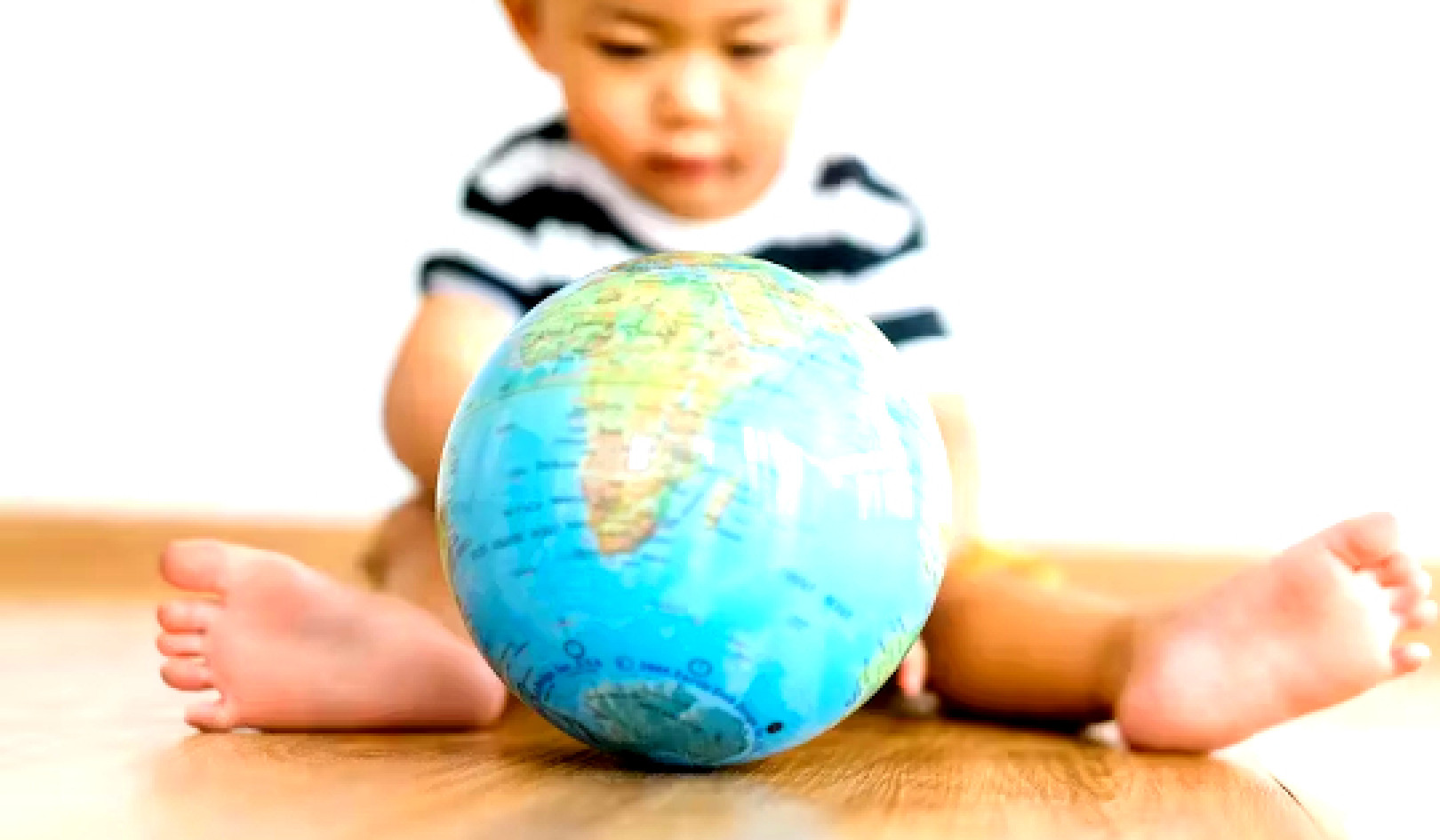
To sit with a dog on a hillside on a glorious afternoon
is to be back in Eden, where doing nothing
was not boring — it was peace.
— MiLAN KUNDERA
For some of us, childhood had a lazy, southern drawl feel to it. Days were spent exploring woods or fields, riding bikes to nowhere in particular, and playing outside until dark. We built towns out of rocks and dirt or converted refrigerator boxes into castles and spaceships. Of course, abuse and neglect were sometimes a sad and secret part of a seemingly idyllic life. But children spent their time differently in the not-so-distant past. We were all in less of a hurry.
Today’s kids carry the weight of the world on their backs. They are urged to excel in school, perform impressively in their extracurricular activities, manage complicated relationships (both real and cyber), and compete to get into a good college or find a decent job.
In 2012 it was revealed that 125 Harvard students had been involved in a cheating scandal. Research conducted by the University of Michigan stated that 10 percent of high school sophomores and almost one in eight seniors admitted to using illegally obtained prescription medications (“study drugs”) to keep up with their workload. And according to the Journal of Adolescent Health, most teens are getting at least two hours less sleep than is recommended for good health.
Stress in America
In a study titled “Stress in America,” commissioned by the American Psychological Association, it was found that 30 percent of teens reported feeling overwhelmed, depressed, or sad as a result of stress. Almost 25 percent said they skipped meals because of stress. Almost one-third of teens say that stress often brings them to the verge of tears. In the past sixty years, the suicide rate has quadrupled for males fifteen to twenty-four years old, and doubled for females of the same age. Suicide rates for those between the ages of ten and fourteen increased more than 50 percent between 1981 and 2006.
The American Academy of Pediatrics released a study noting that stress hormones such as cortisol and adrenaline can have a significant long-term impact on a teen’s body, potentially contributing to adult cardiovascular disease, asthma, viral hepatitis, and autoimmune diseases. Stress can unleash chemicals that interfere with the development of neuronal networks in the developing brain as well as inhibit the development of new neurons in growing brains.
Real-Life Evidence of Statistics
The real-life evidence of these statistics regularly shows up in my office. Eight-year-olds whose parents bring them because they have been saying they want to kill themselves. Fourteen-year-olds who use cutting to ease their anxiety and unhappiness. Kids who can’t sleep, can’t eat, are withdrawn, tearful, or afraid of being alone.
I see the bullied and the bullies, the kids who cheat on tests, and those who routinely get drunk to dull the pain and pressure of their lives. It is heartbreaking. Childhood is brief. During this little window of time, our youngsters are meant to explore the world, figure out how to get along with others, discover their gifts, climb, dance, play music...and have fun.
As parents we have a dramatic influence on our children’s beliefs about what matters. If we teach them that external achievement is what we care most about, they will naturally look for shortcuts to get ahead — cheating on tests or cutting back on sleep. They need to know that we want them to live with curiosity, excitement, and enthusiasm, and that we are here to enjoy life, not to push and shove our way through it.
Connecting in Real Life
A significant contributor to stress is isolation or disconnection. Michael Price, in an interview with Sherry Turkle, author of Alone Together, writes, “People today are more connected to one another than ever before in human history, thanks to Internet-based social networking sites and text messaging. But they’re also more lonely and distant from one another in their unplugged lives. This is not only changing the way we interact online, it’s straining our personal relationships, as well.”
Turkle tells Price, “When teens tell me that they’d rather text than talk, they are expressing another aspect of the new psychological affordances of the new technology — the possibility of our hiding from each other. They say a phone call reveals too much, that actual conversations don’t give them enough control over what they want to say.”
Kids step out of school to see their parents looking down at their smartphones. Boys who once chatted with dad between plays as they watched sports now wait while he checks his email instead. Little ones are nursed or bottle-fed while mommy texts, diluting the emotional exchange of this primal, intimate contact. In addition, if mom gets a message that generates anxiety, her tense feelings are communicated to the baby, who experiences them as stress in his relationship with mommy rather than because of outside influences.
Being Deeply Connected Helps Prevent Stress
In her book Thrive, Arianna Huffington shared the following story: “The last time my mother got angry with me before she died was when she saw me reading my email and talking to my children at the same time. ‘I abhor multitasking,’ she said, in a Greek accent that puts mine to shame. In other words, being connected in a shallow way to the entire world can prevent us from being deeply connected to those closest to us — including ourselves. And that is where wisdom is found.”
Connection helps to prevent stress. Nothing fortifies a child like genuine connection with a loved one. Children who have durable, reliable attachments with healthy loved ones are much better able to cope with life’s stressors. Author Johann Hari cites research suggesting addiction is a result of disconnection, not just chemistry. “If we can’t connect with each other, we will connect with anything we can find — the whirr of a roulette wheel or the prick of a syringe.” He quotes professor Peter Cohen, who says, “We should stop talking about ‘addiction’ altogether, and instead call it ‘bonding.’ A heroin addict has bonded with heroin because she couldn’t bond as fully with anything else.” Hari goes on to say that “the opposite of addiction is not sobriety. It is human connection.”
There will always be youngsters who have close relationships with their parents but who still struggle mightily with adversity, but generally speaking, attachment with a loving parent or caregiver offers children a huge advantage in mitigating the stresses of life.
Managing Change and Uncertainty
One of life’s greatest certainties is uncertainty. The more we can make peace with the fact that some things are outside our control, the less helpless we will feel when life isn’t going according to plan. Demonstrating that we can be flexible in unexpected situations helps our children know that they, too, can tolerate being in limbo while they wait for more to be revealed.
I remember once sitting in an airport in Nairobi with my then fifteen-year-old son. It was midnight, and we had just been told that we would not be allowed to board our flight for Australia because the airline did not recognize our electronic visas. Ari started to get nervous; we had no contacts in Nairobi, had been up for nearly twenty-four hours traveling from Tanzania, and departure time was fast approaching. As concerned as I was, I tried to stay relaxed, knowing that how I dealt with the situation was likely to influence how my son handled similar events later on in his life.
I suggested that we make friends with the worst-case scenario. We started talking about things we could do if we were waylaid, reminding ourselves that even if we had to wait in Nairobi a day or two for a traditional visa to come through, we would be okay.
Moments before our flight was ready to depart, the airline received a fax from the Australian consulate, and we were permitted to board. But by then we were confident that if we didn’t make our flight, we would simply have a different few days than we’d planned, and that we would be okay.
But helping our children isn’t just about teaching them how to cope when things aren’t going well. It is also about infusing their days with enjoyment.
Having Fun
It is said that the average four-year-old laughs three hundred times a day; a forty-year-old, only four. Laughter reduces stress hormones, boosts endorphins, improves the flow of blood to the heart, increases the number of natural virus-killing cells, and makes us more resistant to disease. It improves our mood and attitude, and solidifies bonds between people.
Laughter and fun are wonderful ways to combat stress. Music can also be a terrific way of getting out of our heads and into our hearts. Try playing “Oh What a Beautiful Morning” when you’re waking the kids in the morning, or Pharrell Williams’s “Happy” as you all dance your way to dinner. A small change of state can make a big impact.
Our attitudes about life can make or break our children’s stress levels. It isn’t always easy to know when we should encourage them to forge through obstacles, and when to teach them that it’s okay to let go and chalk up something as a life lesson. But as with every aspect of parenting, how we navigate the twists and turns in our lives will influence how our children handle their own.
Persisting
Motivating our children to keep trying when success eludes them is invaluable. It is vital that they develop the inner resources to push through stumbling blocks when it would be easier to throw in the towel. But there is a difference between pursuing dreams with passion and joy and trying to force something to happen when it isn’t meant to be. Our kids need to understand that when they don’t attain a hoped-for goal, they can try another approach, take a pause in their pursuit, or let go. Not manifesting a particular outcome is not failure, and failure is not fatal. Stumbling along, tripping, and falling is often how we get to where we’re going.
Let your kids understand that although we might have preferences, we can be at peace when life doesn’t go the way we had planned. How does your child see you react to the news that you’ve missed your flight? Do you look for someone to blame? What do they watch you do when you are told that your car needs a major repair? Do you curse and stomp your feet?
Make it evident that when something unexpected happens, you can roll with it. Let them hear you asking the question, “Will this be an issue in five years — or two days?” By letting your children see you putting those bumps in the road into a larger context, they will be inclined to do the same. But if you think that to be okay a situation must unfold exactly as you think it should, you will feel powerless. And powerlessness leads to stress.
The pressures that kids face today are exceptional, and as stress levels continue to climb, we need to help our youngsters develop good coping strategies.
Paying Attention to Your Child’s Stress
If you have a child who is exhibiting ongoing signs of stress or its cousins — anxiety and depression — please don’t look the other way. Make sure your kids know that whatever they are going through, they can tell you the truth. In my online workshops and trainings I devote a significant amount of time to working with parents so that they don’t send their kids a mixed message: You can tell me anything. Wait a minute — you did what?! You’re in big trouble!
If we are to help our kids manage stress and restore their equilibrium when life feels hard, we need to do our own work so that we can honestly tell them, “Whatever you’re going through, sweetheart, I’m here and I will help you through this.”
©2015 by Susan Stiffelman. All Rights Reserved.
Reprinted with permission of the publisher,
New World Library, Novato, CA 94949. newworldlibrary.com.
Article Source
 Parenting with Presence: Practices for Raising Conscious, Confident, Caring Kids
Parenting with Presence: Practices for Raising Conscious, Confident, Caring Kids
by Susan Stiffelman MFT.
Click here for more info and/or to order this book.
About the Author
 Susan Stiffelman is also the author of Parenting Without Power Struggles and is the Huffington Post’s weekly “Parent Coach” advice columnist. She is a licensed marriage and family therapist, a credentialed teacher, and an international speaker. Susan is also an aspiring banjo player, a middling but determined tap-dancer, and an optimistic gardener. Diagnosed with the ADHD label, she manages to accomplish more in a week than many do in a month, while maintaining a regular meditation practice and spending serious amounts of time playing. Visit her website at www.SusanStiffelman.com.
Susan Stiffelman is also the author of Parenting Without Power Struggles and is the Huffington Post’s weekly “Parent Coach” advice columnist. She is a licensed marriage and family therapist, a credentialed teacher, and an international speaker. Susan is also an aspiring banjo player, a middling but determined tap-dancer, and an optimistic gardener. Diagnosed with the ADHD label, she manages to accomplish more in a week than many do in a month, while maintaining a regular meditation practice and spending serious amounts of time playing. Visit her website at www.SusanStiffelman.com.




























